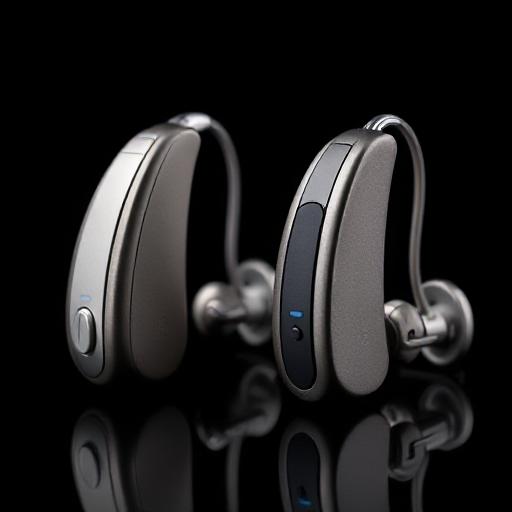Multi-Microphone Speech Enhancement
Contact: Richard Hendriks
Devices such as hearing aids rely on speech enhancement algorithms to increase intelligibility of target speakers. By utilising the array of microphones in these devices, incoming sound can be filtered spatially to suppress certain directional interference. Below is a list of implementations for different spatial filters, known as beamformers.
Items under this topic
Beamforming with Interaural Time-To-Level Difference Conversion for Hearing Loss CompensationMATLAB software for a binaural beamformer, preserving binaural cues while enhancing low-frequency ILDsSoftware, Oct 2025 |
Binaural Beamforming Taking into Account Spatial Release from MaskingMATLAB software for a binaural beamformer, optimising a SRM-compensated SINR and preserving binaural cuesSoftware, Aug 2024 |
Distributed Rate-Constrained LCMV BeamformingMATLAB software for a distributed monaural beamformer, minimising transmission cost through microphone rate allocationSoftware, Mar 2019 |
A Convex Approximation of the Relaxed Binaural Beamforming Optimization ProblemMATLAB software for RJBLCMV, a binaural beamformer with relaxed binaural cue preservation, using semi-definite convex relaxationSoftware, Oct 2018 |
Rate-Distributed Spatial Filtering Based Noise Reduction in Wireless Acoustic Sensor NetworksMATLAB software for a monaural beamformer, minimising transmission cost through microphone rate allocationSoftware, Jun 2018 |
A Low-Cost Robust Distributed Linearly Constrained Beamformer for Wireless Acoustic Sensor Networks With Arbitrary TopologyMATLAB software for a distributed monaural beamformer, reducing the CPSD matrix to a block-diagonal formSoftware, Apr 2018 |
Microphone Subset Selection for MVDR Beamformer Based Noise ReductionMATLAB software for a monaural beamformer, minimising transmission cost through microphone subset selectionSoftware, Dec 2017 |
Relaxed Binaural LCMV BeamformingMATLAB software for RJBLCMV, a binaural beamformer with relaxed binaural cue preservationSoftware, Nov 2016 |
Improved Multi-Microphone Noise Reduction Preserving Binaural CuesMATLAB software for JBLCMV, a binaural beamformer with binaural cue preservationSoftware, May 2016 |
Intelligibility Enhancement Based on Mutual InformationMATLAB software for a monaural beamformer, optimising mutual information between spoken and perceived messagesSoftware, Mar 2016 |
